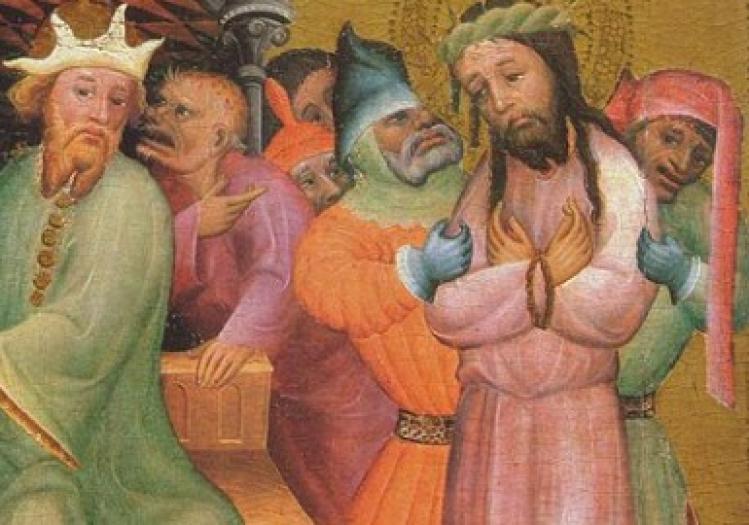
Scholars have determined that Augustine’s expositions of Psalms 110 to 117 [111-118] were given as reflections presented to a small group of listeners during Easter week of the year 404, April 17 to 24. The following is the introductory paragraph to the whole series. It helps to know that in northern Africa in Augustine’s time, the Alleluia was sung only during Eastertide.
The days have come when we may sing Alleluia. Be present in mind, brothers and sisters, to receive whatever the Lord suggests in order to exhort us and to nourish the charity with which it is good to cling to God (see Ps 72[72], 28). Be present in mind, you fine singers, children of the eternal praise and glory of the true and incorruptible God. Be alert here, you who know how to “sing and make melody in your hearts to the Lord, giving thanks always in all things” (Eph 5:19-20). And praise God, for this is what “Alleluia” means. These days have come but will pass away; they pass away but will come again. They symbolize that day which does not come and does not pass away because it does not follow a preceding yesterday and is not forced to pass on by some tomorrow. When we come to that day, we will cling to it and we, too, will not pass away, as is sung somewhere to God, “Blessed those who dwell in your house: they will praise you forever and ever” (Ps 83[84]:5). That will be the employment of those at leisure, the work of the idle, the activity of those at rest, the concern of those who have no cares [otiosorum negotium, hoc opus vacantium, haec actio quietorum, haec cura securorum]. We have just completed the forty days of Lent which symbolize the sadness of this life before the resurrection of the Lord’s body, and these days of grateful joy succeed to them. In the same way, that day which after the resurrection will be given to the complete Body of Christ, that is, to his holy Church, will succeed in endless bliss all the distress and sorrows of this life. ...
The fifty days after the Lord’s resurrection, when we sing the Alleluia, does not symbolize simply the end and passing of a season, but a blessed eternity, and this because when you add a ten-piece to the forty days that symbolize the toil of believers in this life, you reach the reward that the master of the house gave equally to the first and the last laborers (see Mt 20:1-16). Let us listen in this Psalm, then, to the beating heart of the People of God. In this Psalm we hear the resounding voice of one exulting in happy exultation. He prefigures God’s People, the Body of Christ freed from all evil, its heart streaming with love. (EnPs 110[111], 1; PL 37, 1463-1465)
